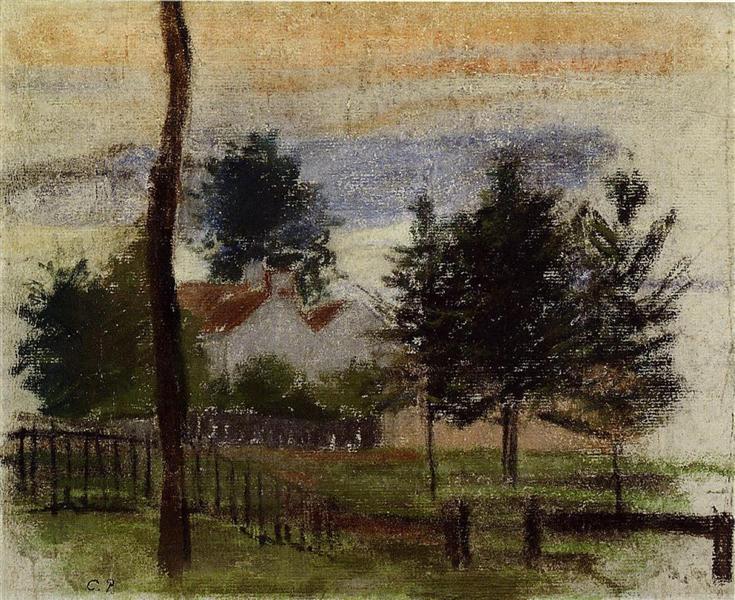Tanım
Camille Pissarro's painting "Landscape at Louveciennes," painted in 1869, is a brilliant example of the artist's talent in capturing light and nature, defining characteristics of Impressionism. In this work, Pissarro presents a pastoral scene that reflects both the serenity of the setting and his skill in using color and texture in a way that evokes an almost tangible experience of the place.
Visually, the scene opens before our eyes with a field stretching out in a delicate play of green and yellow hues, highlighted by light that seems to filter through the clouds. The composition is dominated by a high horizon, suggesting a vast and expansive landscape. Pissarro employs a technique of loose, fluid brushstrokes that allow the atmosphere of the day to feel vibrant and dynamic. The depiction of the sky, with its blue and cloudy hues, adds a layer of emotional depth to the work, suggesting the fickleness of weather, a recurring theme in Impressionism.
Throughout the painting, we can see the presence of human figures in the distance. Although they are barely outlines, these characters contribute to the narrative of the landscape: they seem to be engaged in rural labor, an activity that reflects everyday life in the 19th century. The inclusion of humans in this natural environment not only adds a sense of scale, but also emphasizes the interconnection between man and nature, an important component of the Impressionist movement, which sought to show life in its most authentic and ephemeral state.
The use of color in “Landscape at Louveciennes” is particularly notable. Pissarro applies a palette that combines warm and cool tones, creating contrasts that add vibrancy and luminosity to the scene. The greens of the countryside are masterfully complemented by the golden tones of sunlight, while the shadows are treated with a subtlety that brings to life the texture and relief of the agricultural land. This attention to detail shows the artist’s evolution towards more modern techniques, which would forget the rigid structures of academic models in favor of a freer and more natural expression.
It is interesting to note that in this work we can see the influence of realism, a precursor of impressionism, which is also reflected in the honest and unidealistic representation of the rural landscape. As Pissarro moved away from conventions, his style became increasingly distinctive, highlighting the essence of the moment and the personal perception of nature.
Pissarro is not only a master of color and light, but also a pioneer in exploring everyday life through his art. "Landscape at Louveciennes" offers a window into the rural life of his time, but also stands as a milestone in the development of Impressionism. This painting, like Pissarro's other works, evidences his interest in depicting not only nature, but also how humans interact with the world around them.
In short, “Landscape at Louveciennes” is a testament to Camille Pissarro’s ability to capture the essence of his surroundings. Through its careful composition, use of color, and inclusion of human figures, the work not only invites visual contemplation, but also deeper reflection on the connection between man and nature, a theme that continues to resonate in contemporary art.
KUADROS ©, a famous painting on your wall.
Hand-made oil painting reproductions, with the quality of professional artists and the distinctive seal of KUADROS ©.
Painting reproduction service with satisfaction guarantee. If you are not completely satisfied with the replica of your painting, we will refund 100% of your money.

